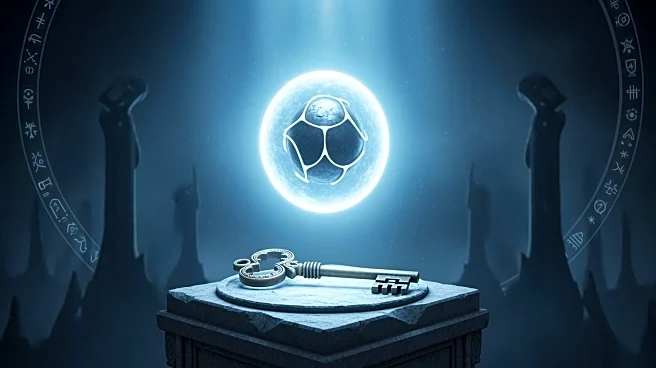What's Happening?
A recent article highlights four new science fiction and fantasy novels that delve into themes of alien invasions, terraforming gone awry, and secret societies. These books include 'Red City' by Marie Lu, which explores a turf war between alchemists in Los
Angeles, and 'Hole in the Sky' by Daniel H. Wilson, which involves a sinister alien presence following the Voyager 1 spacecraft's journey. 'The King Must Die' by Kemi Ashing-Giwa presents a narrative of rebellion against a tyrannical emperor on a planet called Newearth, while 'Witchlore' by Emma Hinds features a shape-shifter's quest to resurrect a loved one in an alternate Britain. Each novel is noted for its engaging storytelling and exploration of power dynamics.
Why It's Important?
These novels are significant as they offer fresh perspectives on classic science fiction and fantasy themes, such as alien encounters and secret societies. They provide readers with imaginative narratives that challenge conventional power structures and explore human nature's complexities. The books also reflect contemporary societal issues, such as wealth disparity and environmental degradation, through their speculative settings. This makes them not only entertaining but also thought-provoking, potentially influencing readers' views on real-world issues.
What's Next?
As these novels gain readership, they may inspire discussions on the themes they explore, such as the ethical implications of power and the impact of human actions on the environment. They could also influence future works in the genre, encouraging authors to tackle similar themes with innovative approaches. Additionally, the success of these books might lead to adaptations in other media, expanding their reach and impact.
Beyond the Headlines
The exploration of entrenched systems of power in these novels highlights the ongoing cultural fascination with challenging authority and seeking justice. This reflects a broader societal trend towards questioning established norms and advocating for change. The novels' diverse settings and characters also contribute to a more inclusive representation in the genre, which is increasingly important in today's literary landscape.















